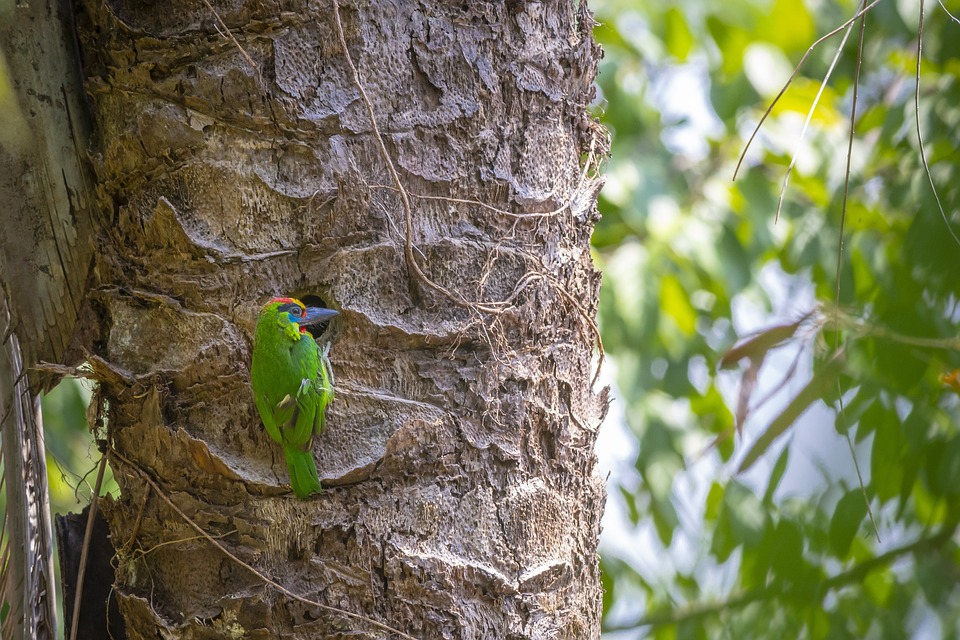Traveling can be a stressful experience for anyone, including our feathered friends. Parrots are highly sensitive creatures, and changes in their environment can lead to anxiety and stress. As responsible parrot owners, it is essential to recognize the signs of stress during travel and take necessary steps to provide comfort and alleviate their anxiety. In this article, we will discuss common signs of stress in parrots during travel and provide useful tips to ensure their well-being. Additionally, we will address frequently asked questions about parrot travel.
Signs of Stress in Parrots During Travel
Parrots, with their intricate emotional and cognitive abilities, display various signs when they are stressed. Paying attention to these signs is crucial for prompt action. Here are some common indications that your parrot may be experiencing stress during travel:
1. Vocalization changes: Parrots may become excessively loud or unusually quiet during travel. They may scream, squawk, or display other abnormal vocalizations as a response to stress.
2. Feather plucking and self-mutilation: Stress can trigger feather plucking, a behavior where parrots excessively groom or pull out their feathers. Self-mutilation, such as biting their skin or nails, can also occur in extreme cases.
3. Loss of appetite: A parrot experiencing stress may refuse to eat or drink. This can lead to dehydration and malnutrition if not addressed promptly.
4. Aggression or fear: Parrots may exhibit aggressive behaviors, such as biting or lunging, when they are stressed. They may also show signs of fear, such as cowering or trying to hide.
5. Excessive preening: While grooming is a normal behavior for parrots, excessive preening can indicate stress. Parrots may over-groom certain body parts or continuously groom even when it is unnecessary.
6. Changes in droppings: Stress can affect a parrot’s digestive system, leading to changes in droppings. Look for variations in color, consistency, or frequency of droppings.
7. Unusual body postures: Parrots may adopt strange body postures when they are stressed. They may hunch their bodies, fluff up their feathers, or tuck their heads under their wings.
Providing Comfort for Stressed Parrots During Travel
Now that we have identified common signs of stress in parrots during travel, let’s explore ways to provide comfort and alleviate their anxiety:
1. Familiarize your parrot with the travel carrier: Before the actual trip, let your parrot spend time in the carrier to become familiar with the environment. Allow them to explore the carrier at their own pace, offering treats and positive reinforcement.
2. Maintain a consistent routine: Parrots thrive on routine, so try to stick to their regular feeding and sleeping schedule as much as possible during travel. Familiarity with their routine can help reduce stress.
3. Create a safe and comfortable environment: Line the carrier with familiar bedding or materials that have your parrot’s scent on them. Providing a cozy and familiar environment can help them feel secure during the journey.
4. Play soothing music: Playing calming music or natural sounds, such as rainforest sounds or gentle waves, can help create a relaxing ambiance for your parrot. Avoid loud or sudden noises that may startle them.
5. Offer distractions and mental stimulation: Provide your parrot with toys, puzzles, or favorite treats to keep them occupied and mentally engaged during travel. This can divert their attention from stress-inducing factors.
6. Ensure proper ventilation and temperature: Parrots are sensitive to temperature changes, so it’s crucial to maintain a comfortable environment. Ensure adequate airflow and protect them from extreme heat or cold.
7. Minimize exposure to unfamiliar stimuli: Covering the carrier partially or completely can help reduce visual stimulation and make your parrot feel more secure during the journey. This can also prevent unnecessary stress caused by unfamiliar surroundings.
FAQs about Parrot Travel
Q1. Can I sedate my parrot for travel?
A1. No, sedating your parrot for travel is highly discouraged. Sedation can have adverse effects on their health, and it’s best to explore stress-reducing techniques instead.
Q2. Are there any specific travel carriers for parrots?
A2. Yes, there are specially designed travel carriers available for parrots that provide secure and comfortable transportation. Look for carriers with appropriate ventilation, perches, and easy access.
Q3. How long can parrots endure travel?
A3. Parrots can endure travel for several hours, but it is essential to plan breaks for them to stretch, eat, and drink. Long journeys should be avoided if possible.
Q4. Should I consult a veterinarian before traveling with my parrot?
A4. It is always recommended to consult with a veterinarian before embarking on any travel with your parrot. They can provide valuable advice, ensure your parrot’s health is optimal, and address any specific concerns.
By recognizing signs of stress in your parrot during travel and implementing measures to provide comfort and alleviate anxiety, you can ensure a smoother and less stressful journey for your feathered companion. Remember, a stress-free parrot is a happy and healthy parrot!









